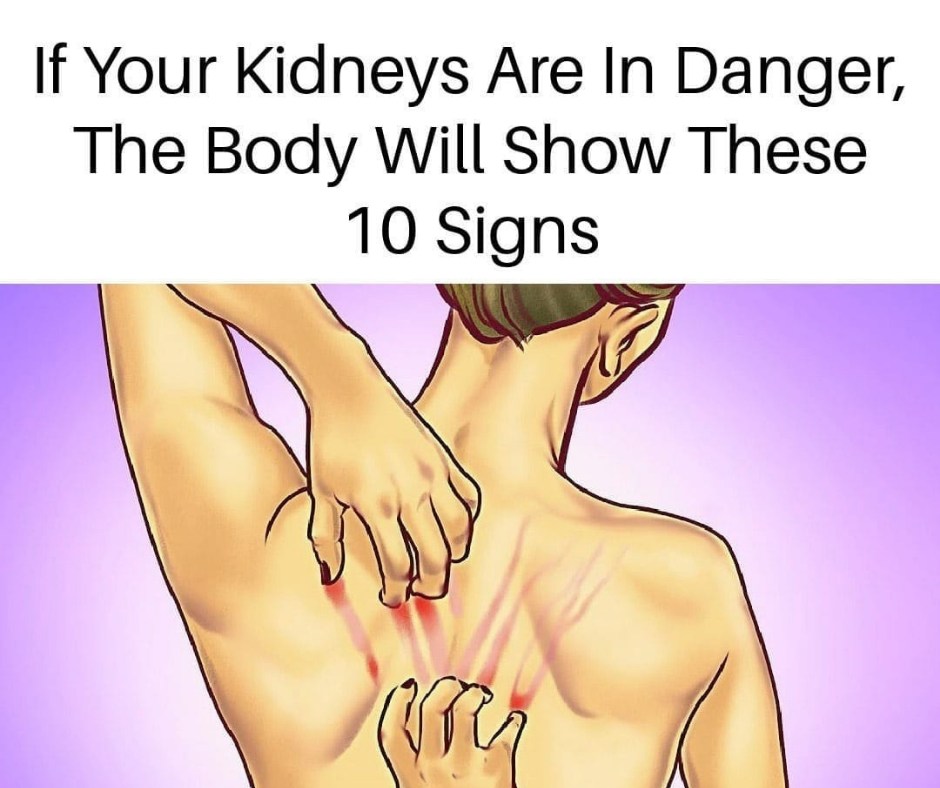Your kidneys might be small, but they play a huge role in keeping you healthy. These bean-shaped organs, located just below your ribcage on either side of your spine, work tirelessly to filter waste products and excess fluids from your blood, maintaining a delicate balance of electrolytes like sodium, potassium, and calcium. They also regulate blood pressure, produce red blood cells, and ensure your body functions smoothly. Healthy kidneys filter about 120 to 150 quarts of blood daily, producing 1 to 2 quarts of urine. When your kidneys are in trouble, your body often sends clear signals—it’s crucial to recognize these signs early.

Understanding Kidney Disease
Kidney disease, also known as renal disease, occurs when the kidneys become damaged and lose their ability to function properly. This can result from various causes, including high blood pressure, diabetes, infections, autoimmune disorders, or even genetic predisposition. If left untreated, kidney disease can progress to kidney failure, requiring dialysis or a transplant. Early detection is key to preventing further damage and managing the condition effectively.
10 Warning Signs of Kidney Trouble
If your kidneys are struggling, your body will often display these symptoms. Paying attention to them could save your life:
-
- Changes in Urination
One of the earliest signs of kidney problems is a noticeable change in urination. You might find yourself needing to go more frequently, especially at night, or less often than usual. The appearance of your urine might change, becoming foamy or darker in color. - Fatigue and Weakness
When the kidneys don’t function properly, they fail to produce enough erythropoietin—a hormone essential for making red blood cells. This can lead to anemia, causing persistent fatigue, weakness, and difficulty concentrating. - Swelling (Edema)
Damaged kidneys can’t remove excess fluids from the body, leading to swelling in areas like the legs, hands, face, or abdomen. This condition, known as edema, is a common symptom of kidney dysfunction.
- Changes in Urination
- Persistent Back Pain
Pain below the ribcage, where the kidneys are located, can be a sign of kidney disease. This pain can range from dull to severe and is often accompanied by tenderness. It can also indicate a urinary tract infection (UTI) that has spread to the kidneys. - Unexplained Weight Loss or Loss of Appetite
Waste products building up in the body due to impaired kidney function can lead to a loss of appetite and unexpected weight loss, as the body struggles to cope with the toxin overload. - Nausea and Vomiting
Kidney issues can cause persistent nausea and occasional vomiting. These symptoms are particularly noticeable in the morning or after eating, as waste accumulation affects your digestive system. - Trouble Sleeping
Many people with kidney problems report difficulty sleeping. This may be linked to muscle cramps, restless leg syndrome, or frequent urination disrupting sleep patterns. - Metallic Taste in the Mouth
A buildup of toxins in the blood due to malfunctioning kidneys can cause a metallic taste in your mouth, making food taste different or less appealing. - Muscle Cramps and Twitching
Imbalances in electrolytes, such as low levels of calcium or potassium, can result in muscle cramps, twitching, or spasms. These are often linked to underlying kidney issues. - Itchy Skin
Excess toxins in the blood can cause generalized itching, as the body struggles to eliminate waste properly. This itching isn’t limited to one area and can be persistent.
How to Protect Your Kidneys
If you notice any of these signs, consult a healthcare professional for evaluation. Early detection and intervention can prevent the progression of kidney disease. Here are some steps you can take to keep your kidneys healthy:
- Maintain a Balanced Diet: Include plenty of fruits, vegetables, whole grains, and lean proteins in your meals. Limit processed foods and high-sodium items.
- Exercise Regularly: Staying active helps manage weight, lower blood pressure, and reduce the risk of diabetes, all of which are crucial for kidney health.
- Stay Hydrated: Drinking enough water flushes toxins from your kidneys, helping them function efficiently.
- Avoid Smoking and Excessive Alcohol: Smoking damages blood vessels, and excessive alcohol can raise blood pressure—both of which stress the kidneys.
- Use Medications Responsibly: Some prescription and over-the-counter drugs can harm your kidneys if misused. Always follow your doctor’s recommendations.
Listen to Your Body
Your kidneys are vital organs, and the body often provides clear warning signs when something is wrong. Recognizing these 10 symptoms can help you catch kidney problems early and get the necessary treatment. Regular health check-ups are essential, especially if you have risk factors like diabetes or high blood pressure.
Taking proactive steps to maintain kidney health can make a significant difference in your overall well-being. By adopting a healthy lifestyle and paying attention to your body’s signals, you can protect your kidneys and ensure they continue to support you for years to come. Remember, your kidneys work hard to keep you healthy—it’s up to you to return the favor





